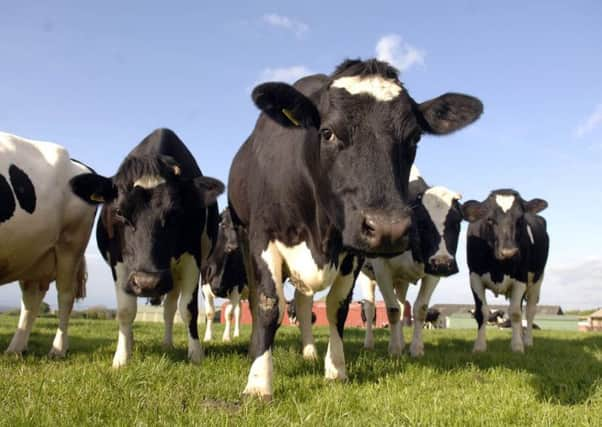Stephen Jardine: Can anyone really be an ethical carnivore?


How many people in the UK can say they know exactly where their food comes from?
If you add the estimated 1.5 million anglers to the 600,000 people shooting live quarry and the 500,000 people working in farming you still get a figure less than 5 per cent of the UK population.
Advertisement
Hide AdAdvertisement
Hide AdThat means the other 95 per cent are relying on someone else to put food on the table and for most of us that is just the way we like it. For decades food production in the UK has been based around, the less we know the better.
As long as other people are prepared to deal with the difficult and dirty bits, we are happy to eat it. But is that really good enough? If we choose to eat meat or fish shouldn’t we at least be concerned about how it is produced?
In her fascinating new book The Ethical Carnivore, former Scotsman journalist Louise Gray explores this by spending a year eating only meat she has killed herself. The journey took her from shooting rabbits to red deer, lambs and pigs via a disturbing visit to an abattoir. The experience might have turned some people vegetarian. Instead, Louise continues to eat some meat but only when she feels comfortable with how the animals were raised and treated. She believes that could be a valuable lesson to us all.
That doesn’t mean we all have to be lurking and watching in abbatoirs before being allowed to take our dinner home. Louise concludes the experience would be too difficult for many of us. Meat processing in this country is designed to produce protein on an industrial scale, not to be a visitor experience for the morbid or curious.
Years ago I toured an abattoir when pigs were being slaughtered and it was a deeply upsetting experience. The staff were professional and focussed but death was everywhere, under my boots and in my nostrils. Like most people I had managed to diassociate diet and death but the visit put me off meat for months.
Ironically it was the smell of a bacon roll that tempted me back but nowadays I stick to UK high welfare and free range pork on the basis that, if I’m eating something, I want it to be good and healthy and to have had the best life possible in the circumstances.
Some say it is incompatible to eat meat and voice concerns about animal welfare but the fact is that historically we are a carnivore nation with meat eating deeply ingrained in our diet and food culture.
The NHS estimates 2 per cent of the UK population is vegetarian leaving 98 per cent of us consuming meat. That vast majority have the ability to influence welfare standards simply through being informed and making good buying decisions.
Advertisement
Hide AdAdvertisement
Hide AdAs a nation, we consume a whopping 84 kilos of meat each year. Every day in Britain we eat more than two million chickens. But instead of this meat dominated diet, we could eat a little less and pay a little more for animals who have been raised and looked after well.
That seems to be what people increasingly want. According to the latest British Social Attitudes Survey, three out of ten people have cut down on the amount of meat they eat in the last 12 months. The reasons cited include health and saving money but a fifth said their decision was related to animal welfare issues.
People power does make a difference here. Battery cages for hens were banned in 2012 and sow crates which restrict the movement of pregnant pigs have also been outlawed. Now 40 per cent of British pork is free range compared to under 5 per cent from Denmark.
Can you really be an ethical carnivore? In a society with deeply established meat eating credentials, it is a challenge and responsibility for us all.